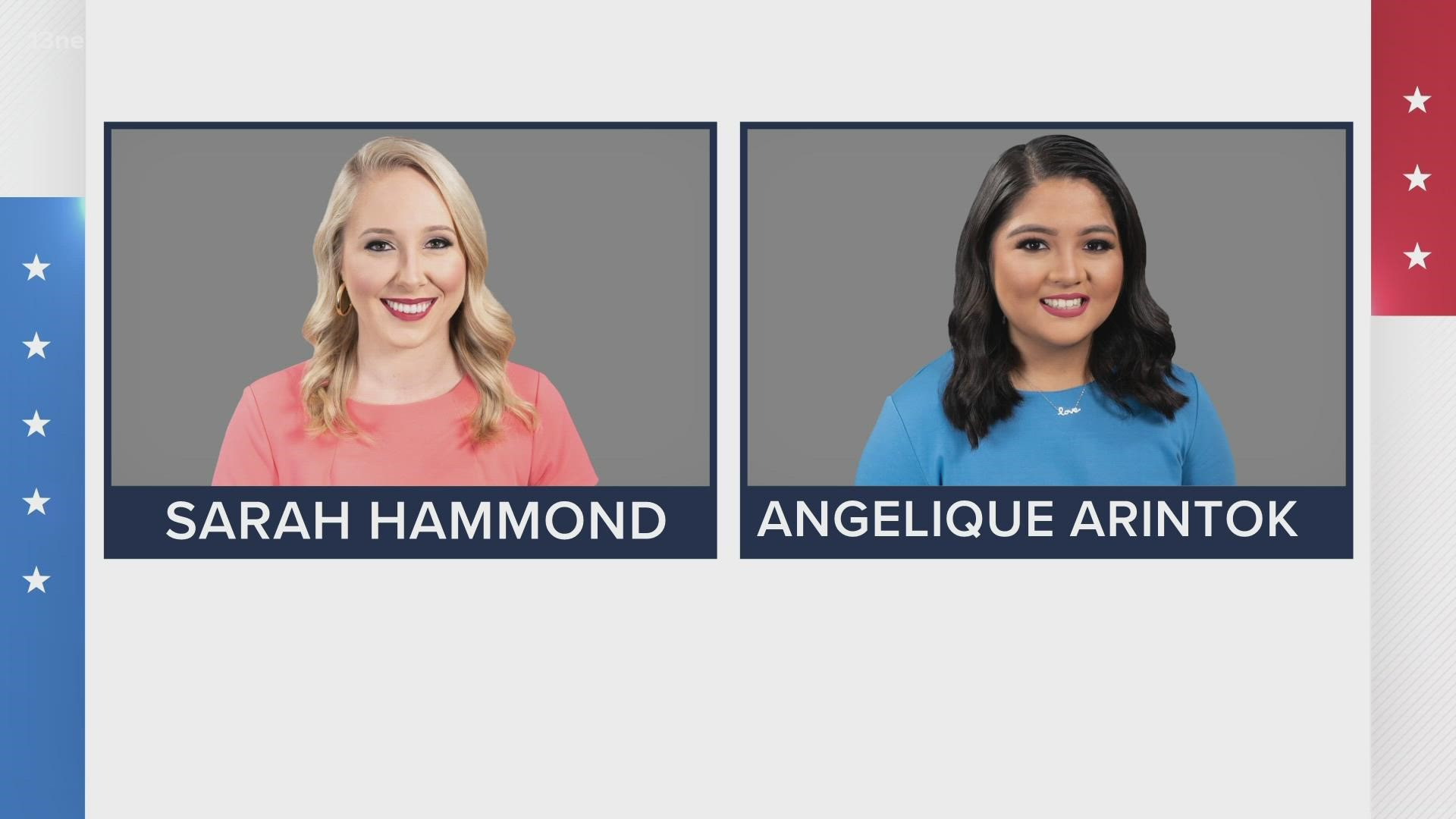NORFOLK, Va. — Election Day 2021 in Virginia is here, and all three statewide races are nail biters as Republicans try to return to power in the post-Trump era.
Last week, the Wason Center at Christopher Newport University released its final poll before the election. It found that all three of Virginia's major statewide races are statistically tied.
In recent history, Virginia has had a reputation for electing governors that come from the opposing party nationally. Democrat Terry McAuliffe bucked this trend back in 2013, when he narrowly defeated Republican nominee Ken Cuccinelli, even though Barack Obama held the presidency.
Now, we wait to see if McAuliffe can beat the odds once again, this time against Republican Glenn Youngkin, or if Republicans can take the executive branch for the first time since 2014. Here are five things to watch for:
How many people will turn out?
With tight polling in a state that has trended Democratic in recent elections, the number of people who vote will be a significant factor in the outcome.
To get an idea of how many people will show up, let's take a look at a few recent Virginia elections.
According to the Virginia Department of Elections, 72% of registered voters turned out in the 2016 elections. That year, Democratic presidential nominee Hillary Clinton won the Commonwealth by 5.3 points.
Turnout was significantly lower in the 2017 election, the last time the governor, lieutenant governor and attorney general offices were on the ballot. 47.6% of registered voters cast their ballots that year. All three Democratic candidates won.
You can also look at the turnout for the 2019 state elections, which had 42.4% turnout.
In the 2020 elections, 75.08% of registered voters cast their ballots. Last year, Democratic presidential nominee Joe Biden defeated Republican U.S. President Donald Trump by 10.1 points.
Overall, recent trends show that off-year elections -- 2017 and 2019 -- had significantly less turnout than presidential years.
When can we expect the results?
Once the polls close at 7 p.m., the count begins.
Virginia law requires election officers to begin processing absentee ballots on Election Day prior to the polls closing. They can also take steps to pre-process the ballot once it arrives before Election Day, including verifying the required voter affirmation.
In a Tuesday morning update, Chris Piper, the commissioner of the Virginia Department of Elections, said registrar officers will tabulate the early in-person and absentee-by-mail results. Because of the pre-processing, he expects that localities will report those results "fairly soon" after the polls close.
Piper also noted that Election Day results will be coming in on a regular basis. He said the Virginia Department of Elections feels confident that the results should be reported normally and fairly quickly.
The deadline for absentee ballots to be accepted is 12 p.m. on Nov. 5. According to the Virginia Department of Elections, the results will be considered incomplete until then.
Local election boards have until Nov. 9 to certify results for the state. Then, the Virginia Department of Elections will certify the results on Nov. 15.
If Youngkin wins, what does this mean at the national level?
McAuliffe and Youngkin have employed different campaign strategies. While McAuliffe has national figures stumping for him, Youngkin has generally eschewed high-profile surrogates, like Trump.
Youngkin has also prioritized education as an issue, expressing opposition to COVID-19 pandemic restrictions, transgender policies, and the implementation of Critical Race Theory.
Since Trump lost Virginia last year, a potential Youngkin win could give a messaging playbook to the Republican Party as they seek to take back both chambers of Congress in the midterms next year. It would also be an indicator of Republican momentum as President Biden's approval rating dips.
If McAuliffe wins, it would be a sigh of relief for national Democrats, who are trying to keep their thin congressional majorities and can't afford a setback going into next year. But a Democratic win here doesn't guarantee victory in the midterms.
What about the races for Virginia attorney general, lieutenant governor?
Democrat Mark Herring has held the attorney general position since January 2014, having been elected twice. He faces Republican Jason Miyares, a member of the Virginia House of Delegates since 2015. The final poll from the Wason Center shows Herring leading Miyares 49% to 48%, with 5% still undecided.
Republican Winsome Sears and Democrat Hala Ayala are on the ballot to be Virginia's next lieutenant governor, both women of color. The Wason Center poll also shows a close race here: Ayala leads Sears by 1%, with 4% undecided.
Will the House of Delegates flip?
Aside from the three statewide races, all 100 seats in Virginia's House of Delegates are up for reelection.
Right now, Democrats hold a 55 to 45 majority. Over the last two years, they have legalized marijuana, expanded voting rights, raised the minimum wage, enacted gun control measures, and repealed the death penalty.
Regardless of who wins the governor's race, several seats could flip because of heightened enthusiasm on the Republican side, including three seats along the western edge of Virginia Beach.
Christopher Newport University political science professor and Wason Center Director Quentin Kidd told 13News Now he's keeping an eye on the 21st, 83rd, and 85th seats.
This story has been updated.
Follow election coverage
Once the polls have closed, you can find live results as they come in for Virginia right here on 13NewsNow.com.

